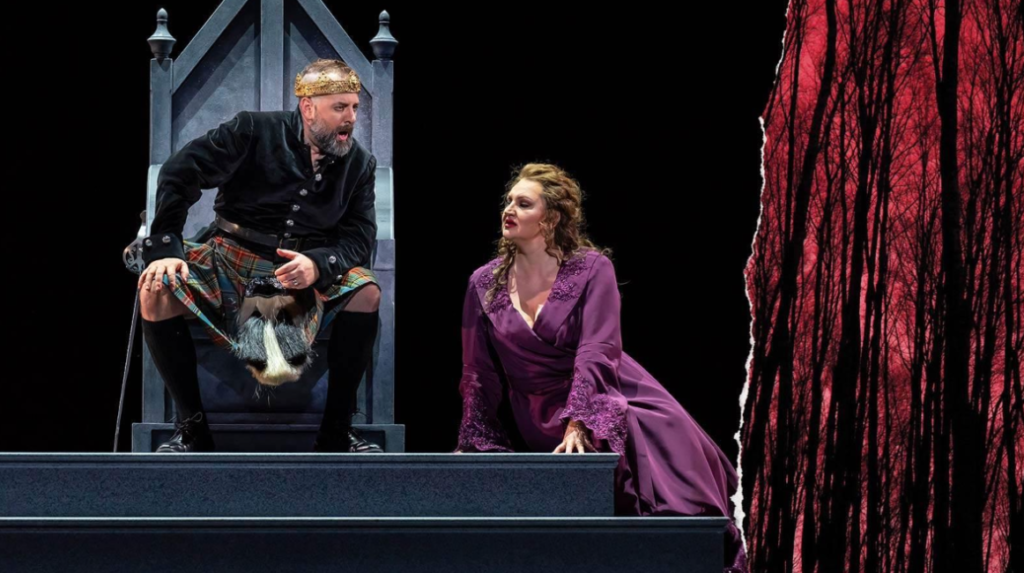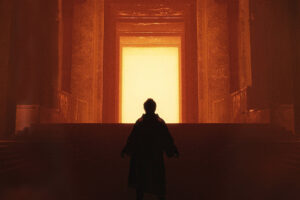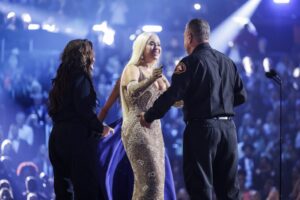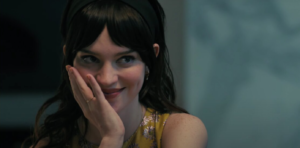Verdi’s Macbeth Delivers Grim Thrills at Washington National Opera

Image Courtesy of The Kennedy Center and Washington National Opera
By Ethan Nott
Amidst a stacked lineup of operas in the 2024-2025 season, The Washington National Opera’s production of Verdi’s Macbeth stands out. Beautiful music, world-class performers, and clever set design synthesize to form a triumphant portrayal of Shakespeare’s source material.
Macbeth is a classic cautionary tale outlining the corruptive nature of power, and Verdi’s libretto strays little from the original plot arc. It tells the story of Macbeth, the newly crowned king of Scotland by murderous means, and his descent into greed-driven madness. The overall narrative follows the formula of Macbeth plotting to do something evil, consulting a group of witches for prophetic wisdom, and carrying out these nefarious deeds. Over the course of the plot, he goes to drastic lengths to hide his avaricious motivations from the public. This comes to a head during a final siege of his castle, in which he is killed by Macduff, the Thane of Fife.
Verdi’s score sufficiently portrays this narrative, characterized by technically difficult arias and memorable melodic gestures. The overture is a highlight of the show, introducing the audience to the score first with a short and mysterious woodwind melody, followed by a menacingly beckoning motif from the brass section. It also contains a personal favorite melody of the show within its second half, carried on the back of a deftly orchestrated string section.
The choral pieces also contain some powerful material and are utilized primarily for crucial points within the plot to great effect. The opening of the show was fantastic, for it consisted of the witch coven giving exposition for the audience in a jaunty and energetic chorale. Other ensemble highlights include the finale of Act 1 and the opening of Act 4; these gave the chorus an opportunity to flex their dynamic range through both thunderous and hushed moments.
Pairing with the score, the quality of the performers on stage is chiefly what allows this story to materialize. Macbeth, played by Ètienne Dupuis, delivered a performance marked by a relaxed and lyrical vocal production, yet still plenty powerful enough to deliver the dramatic weight that Verdi roles demand. Lady Macbeth, portrayed by Ewa Płonka, displayed incredible vocal agility within her demanding arias and gave a stellar performance as the conniving force behind Macbeth’s decisions.
Solomon Howard stepped into the role of Macbeth’s closest friend Banquo in a fantastic vocal performance. His voice was most immediately impressive to me through its sheer size and resonant power. Macduff, brought to life by Kang Wang, gave a wonderful performance; in fact, his sole triumphant aria left the audience cheering, and they gave him applause longer than any other performer.
In addition to the prowess of the vocalists, the set was particularly noteworthy in its minimal yet effective presentation. All of its pieces were very stripped back, giving the audience a bare-bones impression of the locations being portrayed. The set that made up the witches’ abode was fantastic, consisting of long streamers of cloth hanging from the ceiling with eerie, shifting lighting being cast upon them. In a scene where Macbeth is shown the line of kings that will come after him, electronic projections are utilized to great effect, creating the ghosts of these characters in a larger-than-life fashion.
Overall, this season’s WNO production of Macbeth is an impressive artistic showcase for its highly competent performers and creative set designers. This opera was a highly memorable attendance, and I look forward to seeing what WNO’s performances are like this spring.







